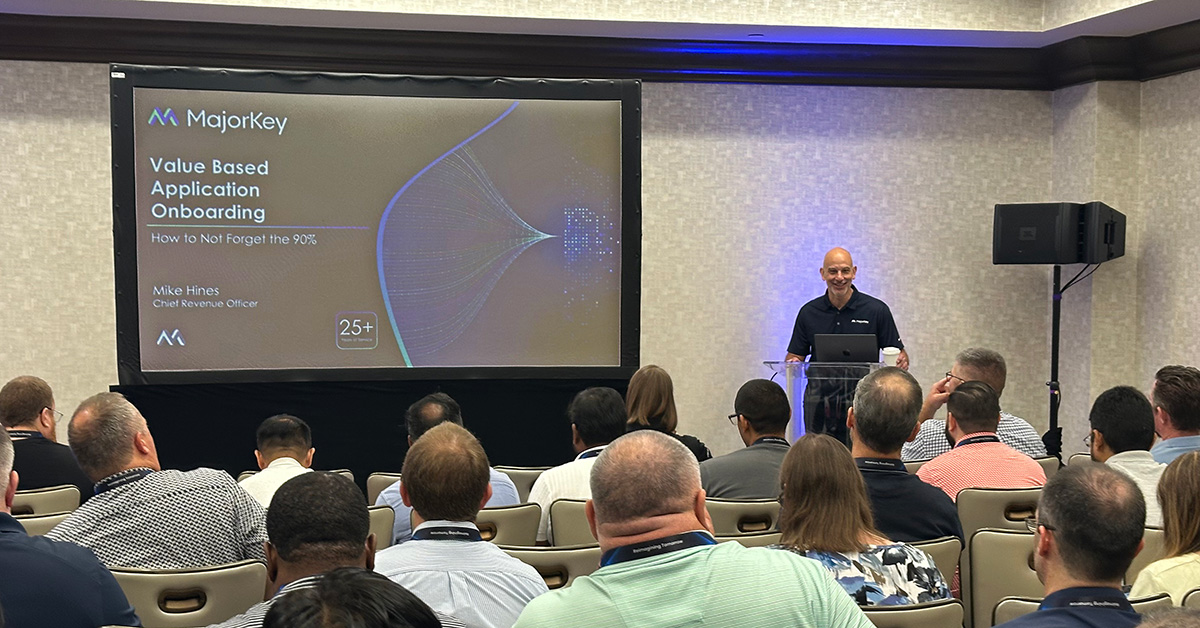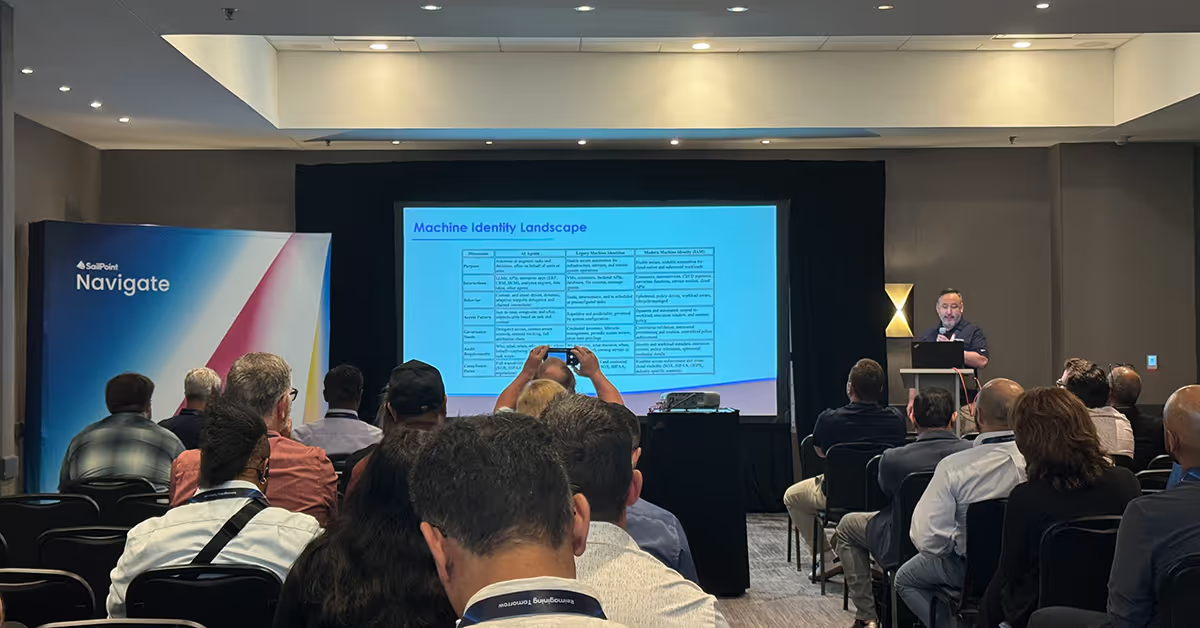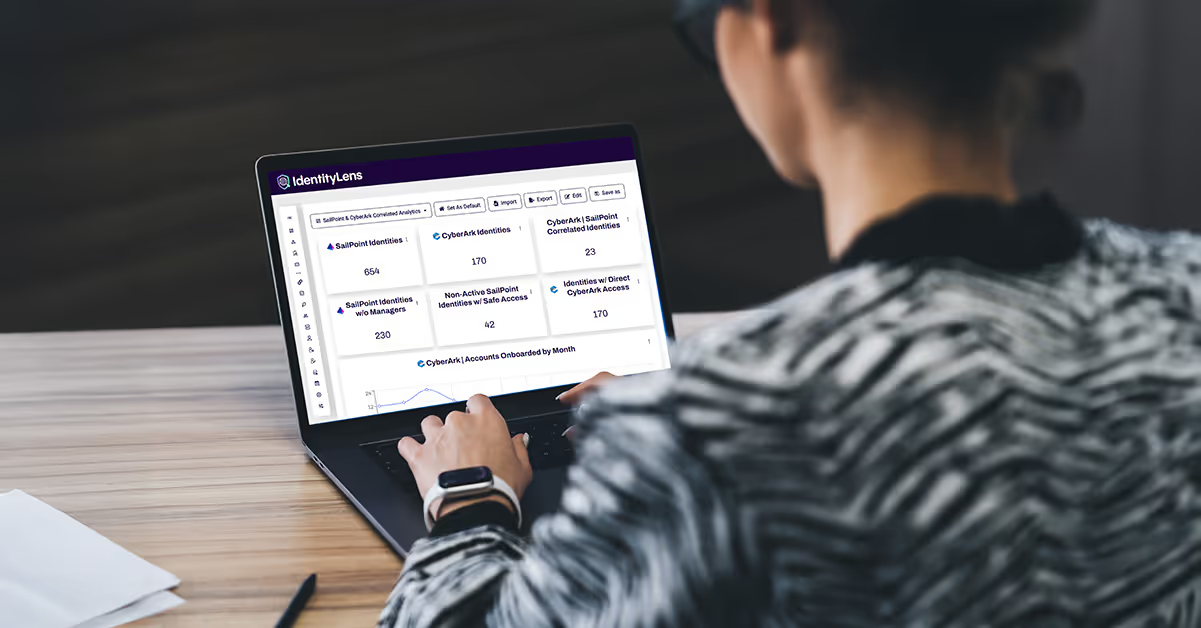Navigating AI Adoption: Identity Security Considerations for Microsoft Copilot
November 18, 2025
|
Duration:
5
min READ

Microsoft’s inclusion of Security Copilot for all Microsoft 365 E5 customers signals a new era of AI-driven transformation. This shift isn’t about going faster—it’s about enabling organizations to do things they couldn’t before: enrich employee experiences, reinvent customer engagement, reshape business processes, and bend the curve on innovation. But unlocking these possibilities requires more than deploying AI tools; it demands a strong identity security foundation. As AI agents like Copilot gain access to sensitive systems and data, organizations must rethink traditional IAM strategies to ensure every AI identity operates with precision, accountability, and compliance.
As AI tools like Microsoft Copilot become more integrated into business operations, organizations face new challenges in managing identity security. The rapid deployment of AI agents and models can introduce risks that traditional identity and access management (IAM) systems, designed for human users, may not fully address.
Why Identity Security Matters in AI Adoption
AI agents often require access to sensitive data and systems to function effectively. Without careful oversight, these agents can be granted broad privileges, potentially violating the principle of least privilege and increasing the risk of unauthorized access or data breaches. Key questions for organizations include:
- What level of access do AI agents actually need?
- Are there controls in place to prevent over-privileged identities?
- How are data governance and privacy policies enforced for AI-driven processes?
- Who is accountable for monitoring and managing AI access?
Learn more about Leveraging AI in Identity Security.
Common Challenges
Organizations adopting AI encounter several identity-related challenges:
- Complex Access Controls: AI agents may interact with multiple systems, making it difficult to track and manage permissions.
- Lifecycle Management: There may be no formal process for de-provisioning AI identities when agents are retired, leaving orphaned accounts that could be exploited.
- Auditability: Ensuring that every AI action is logged and explainable is essential for compliance and incident response.
- Regulatory Compliance: AI can inadvertently breach data privacy regulations if not governed properly.
A Structured Approach: AI Readiness Assessment for Microsoft Copilot
MajorKey's Microsoft Copilot AI Readiness Advisory Assessment helps organizations systematically evaluate their current identity security posture and prepare for Copilot integration. This typically involves:
Discovery & Current State Assessment
- Cataloging Microsoft Copilot, Defender, Intune, Purview, Entra, and other AI tools being used and mapping their identity chains and data flows
- Assessing existing IAM controls and maturity
- Conducting risk workshops with stakeholders
Strategy & Governance Framework Design
- Defining roles and responsibilities for AI access management
- Drafting AI-specific IAM and data policies
- Creating a conceptual architecture for secure AI adoption
Implementation Roadmap
- Designing operational process playbooks
- Developing a phased plan for technology, processes, and people
Key Principles for Secure AI Adoption
- Dynamic Least Privilege: Grant AI agents only the access they need, for the minimum time required.
- Zero Trust: Never trust AI identities by default; always verify and enforce strict controls.
- Automation: Manual IAM processes may not scale for AI; automated enforcement is crucial.
- Explainability: Ensure all AI actions are logged and can be traced for compliance and forensics.
Practical Outcomes
By following a structured assessment and governance approach, organizations can:
- Identify and address vulnerabilities and security gaps
- Strengthen governance with clear policies and accountability
- Align AI adoption with compliance and business objectives
- Build confidence in deploying AI tools like Copilot securely
Conclusion
AI adoption offers significant opportunities for productivity and innovation, but it also requires a proactive approach to identity security. Organizations should evaluate their readiness, update governance frameworks, and implement robust controls to ensure that AI agents operate safely and responsibly.
Frequently Asked Questions (FAQs)
Why is identity security important when adopting AI tools like Microsoft Copilot?
AI agents often require access to sensitive data and systems. Without proper controls, they can be over-privileged, increasing the risk of unauthorized access, data breaches, and compliance violations. Identity security ensures that only the right entities have the right access at the right time.
What are the main risks associated with AI identities?
- Over-privileged access: AI agents may be granted more permissions than necessary.
- Lack of lifecycle management: Orphaned AI identities can remain active after agents are retired.
- Audit gaps: Insufficient logging makes it hard to trace AI actions.
- Compliance issues: AI may inadvertently violate data privacy regulations.
How does a readiness assessment help?
A readiness assessment provides a structured evaluation of your current identity security posture, identifies gaps, and offers a roadmap for secure AI integration. It covers governance, privilege management, lifecycle controls, and compliance.
What is “least privilege” and why does it matter for AI?
Least privilege means granting only the minimum access necessary for an entity to perform its function. For AI, this reduces the risk of accidental or malicious misuse of data and systems.
How can organizations ensure AI actions are explainable and auditable?
Implementing robust logging and monitoring systems allows organizations to track every AI action, making it possible to answer questions like “What did this AI agent do and why?” This is essential for compliance and incident response.
What should be included in AI-specific IAM policies?
- Processes for creating, credentialing, and decommissioning AI identities
- Formal access request and justification procedures
- Data handling and privacy rules for AI training and inference
Who is responsible for managing AI identities?
Responsibility is typically shared:
- CISO/IAM Team: Governance framework and policy enforcement
- AI/ML Teams: Defining required access for AI components
- Cloud/Platform Teams: Implementing technical controls
- Legal/Data Officers: Data classification and regulatory compliance
How often should access reviews for AI agents be conducted?
Regular, automated access reviews are recommended to ensure AI agents retain only necessary permissions and that any changes in roles or requirements are promptly addressed.
Can these principles apply to AI tools beyond Microsoft Copilot?
Yes, while Copilot is a common example, the same identity security principles and assessment approach apply to any AI agent or tool integrated into your environment.
Authors
No items found.
Identity Governance
Privileged Identity
Workforce Identity
Advisory
No items found.
.svg)



















.svg)
